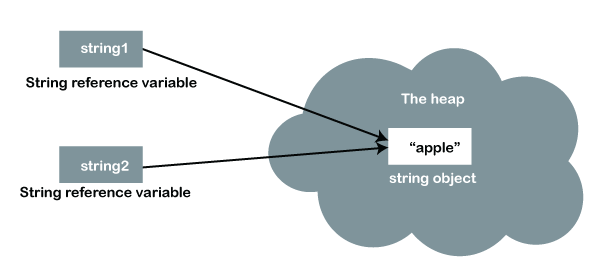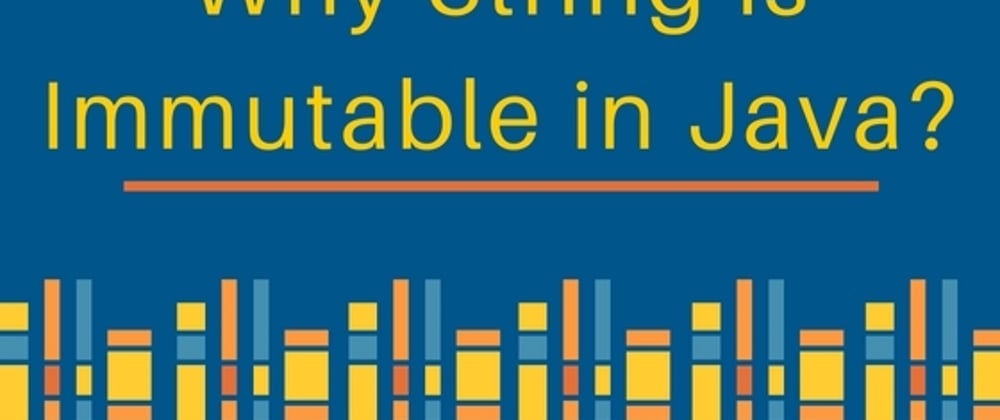Why Are Strings Immutable in Java? Enhancing Code Reliability
Why Are Strings Immutable in Java? Enhancing Code Reliability
Blog Article
What Is Immutable Strings and How It Functions
In the world of shows, understanding the concept of immutable strings is paramount for developing safe and robust applications. Unalterable strings describe strings that can not be modified after they are produced, ensuring information stability and predictability within the code. This basic concept plays an essential duty in numerous programs languages and provides a special strategy to taking care of data. By exploring the intricacies of how unalterable strings operate, one can discover a world of benefits and opportunities that can elevate the high quality and efficiency of software growth.
The Fundamentals of Unalterable Strings
Immutable strings, as a fundamental concept in programming, are personality sequences that can not be altered once they are produced. This means that once a string is appointed a value, that value can not be changed. In languages like Python and Java, strings are unalterable objects, bring about different ramifications in terms of memory management and data honesty.
One of the key benefits of immutable strings is that they supply a sense of security in data adjustment. Because the material of an immutable string can not be changed, it makes sure that the initial information continues to be undamaged, lowering the danger of unintentional adjustments throughout program execution (Why are strings immutable in Java?). This residential property additionally streamlines debugging processes, as designers can rely on that once a string is specified, its value will certainly not be unintentionally modified
When a brand-new string is produced based on an existing one, rather than modifying the original string, the brand-new worth is saved independently. Overall, understanding the fundamentals of unalterable strings is crucial for grasping programs ideas and maximizing code efficiency.
Advantages of Immutable Strings
Structure upon the security and effectiveness benefits of unalterable strings, their benefits encompass boosting code reliability and simplifying simultaneous shows tasks. By being immutable, strings can not be changed after production, which gets rid of the danger of unintended adjustments in the data they store. This integral immutability makes certain that once a string is created, its worth stays constant throughout the program's implementation, reducing the opportunities of pests brought on by unforeseen modifications.
Furthermore, immutable strings add to code reliability by making it less complicated to reason regarding the state of a program. Since strings can not be transformed, designers can trust that a string will constantly hold the very same worth, simplifying debugging and maintenance efforts. This predictability results in much more reputable and secure codebases.

Execution in Programs Languages
Within various shows languages, the incorporation of unalterable strings is a fundamental facet that influences just how data is taken care of and manipulated within code frameworks. The implementation of immutable strings varies across different programming languages, with each language using its very own mechanisms to support this idea.

In contrast, languages like C and C++ do not have integrated support for unalterable strings. Developers in these languages must by hand execute immutability by applying guidelines within their code to stop direct alterations to string objects.
Finest Practices for Dealing With Immutable Strings
When managing unalterable strings in programming languages like Java and Python, sticking to best methods guarantees safe and secure and reliable information control. One of the essential finest techniques is to use StringBuilder or StringBuffer rather than directly manipulating strings, particularly when taking care of extensive concatenation procedures. These classes give mutable alternatives for string control, helping to stay clear of unneeded memory appropriations and boosting performance.
Additionally, when functioning with delicate information such as passwords or API tricks, it is vital to prevent saving them as ordinary text in unalterable strings. Utilizing safe storage mechanisms like char arrays or specialized libraries for taking care of sensitive details assists reduce safety dangers linked with immutable strings.
Real-world Applications and Instances
Discovering useful executions of unalterable strings in different markets reveals their significant influence on information stability and system reliability. In the medical care industry, immutable strings play an important duty in making certain the safety and security and discretion of individual data. By preventing unauthorized modifications to delicate details such as clinical documents and prescriptions, unalterable strings help maintain compliance with stringent personal privacy regulations like HIPAA.
Banks additionally gain from the immutable nature of strings to improve the safety of consumer data and purchase records. Immutable strings aid avoid fraud and unauthorized alterations to economic details, providing a durable defense versus cyber risks and ensuring the depend on and confidence of clients.

Verdict
Best practices for working with immutable strings include preventing direct adjustments and making use of approaches that return brand-new string things. Real-world applications of unalterable strings consist of information file encryption, caching, and string control jobs.
Unalterable strings refer to strings that can not be modified after they are developed, guaranteeing data stability and predictability within the code. When a brand-new string is produced based on an existing one, rather than modifying the initial string, the new value is stored separately.In languages like Java and Python, strings are immutable by default, meaning that once a string object is created, its value can not be changed - Why are strings immutable in Java?. Best practices for working with immutable strings consist of avoiding direct modifications and using techniques that return brand-new string things. Real-world applications of Click Here unalterable strings include information file encryption, caching, and string adjustment jobs
Report this page